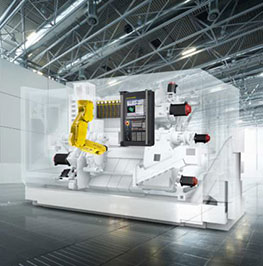

szept . 08, 2024 23:18 Back to list
Understanding the Costs of Industrial Shredding Machines
In the ever-evolving landscape of industrial manufacturing and waste management, the demand for efficient waste processing solutions has significantly increased. One critical option that industries frequently consider is the industrial shredding machine. These machines play a vital role in shredding various materials, including plastic, metal, wood, and electronic waste, making them easier to handle, recycle, or dispose of. However, one of the primary concerns that potential buyers often face is the cost of these machines.
The price of industrial shredding machines varies widely, influenced by several factors. First and foremost is the size and capacity of the machine. Smaller, less powerful models typically cost less, often ranging from a few thousand dollars to about $20,000, while larger, heavy-duty machines designed for high-volume processing can soar to prices exceeding $100,000. Thus, determining the right type of machine that fits a company’s needs is crucial for effectively managing costs.
Another factor affecting price is the complexity of the machine’s design and technology. Basic shredders without advanced features are generally more affordable, but they may lack efficiency and performance. On the contrary, machines equipped with sophisticated technology such as automated feeding systems, noise reduction features, and enhanced safety mechanisms tend to be more expensive. Investing in these additional features can lead to increased productivity and safety, thereby justifying the higher initial cost in the long run.
Material type also plays a role in pricing. For instance, shredding machines designed specifically for certain materials, such as metal or hazardous waste, might have specialized components to handle those materials, leading to increased costs. Conversely, general-purpose shredder models are usually less expensive but may not perform as effectively with specific materials.

Additionally, the manufacturer and brand reputation can significantly influence the price. Established brands with a proven track record for reliability and quality might charge a premium compared to lesser-known manufacturers. However, investing in a reputable brand often results in better performance, lower maintenance costs, and longer machine lifespans.
It's also crucial for businesses to consider ongoing expenses when evaluating the total cost of ownership of an industrial shredding machine. Maintenance, repairs, and operational costs such as energy consumption can accumulate over time. Companies should budget for these ongoing expenses to avoid surprises and ensure the machine remains functional and efficient.
Lastly, potential buyers should explore financing options and the second-hand market. Many manufacturers offer financing plans making it easier to accommodate substantial upfront costs. Additionally, purchasing used or refurbished shredding machines can be an effective way to balance budget constraints while obtaining reliable equipment.
In conclusion, while the price of industrial shredding machines can vary significantly based on several factors, careful consideration of needs versus budget will help businesses make informed purchasing decisions. By understanding these elements, companies can invest in shredding solutions that enhance productivity and support sustainable waste management practices.
Latest news
Troubleshooting Common Eddy Separator Problems
NewsJul.04,2025
The Role of Metal Recycling Plants in Circular Economy
NewsJul.04,2025
The Impact of Recycling Line Pickers on Waste Management Costs
NewsJul.04,2025
Safety Features Every Metal Shredder Should Have
NewsJul.04,2025
How Industrial Shredders Improve Waste Management Systems
NewsJul.04,2025
How Cable Granulators Contribute to Sustainable Recycling
NewsJul.04,2025